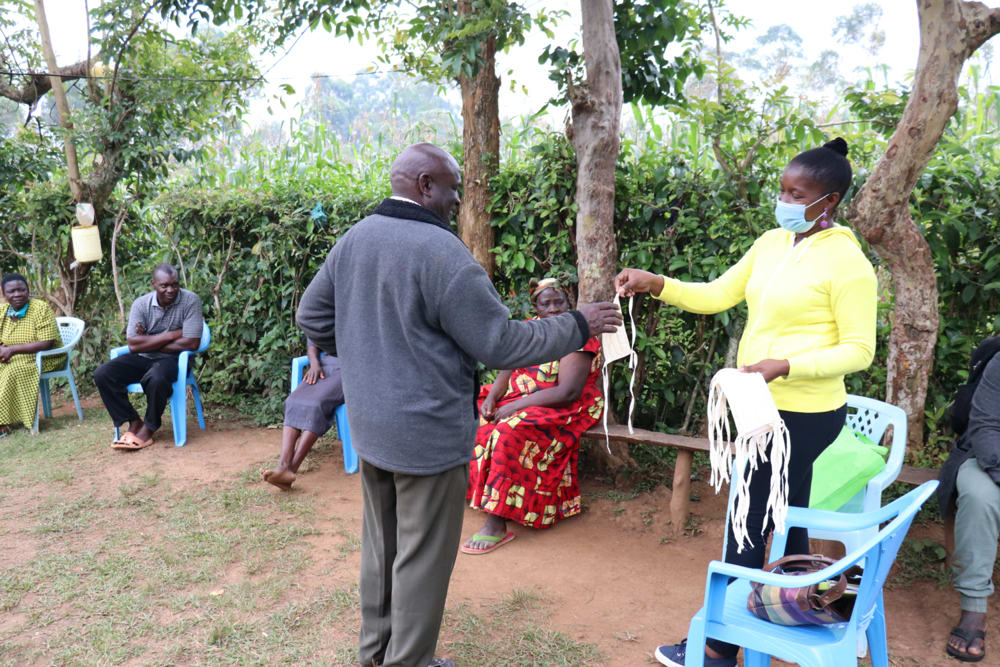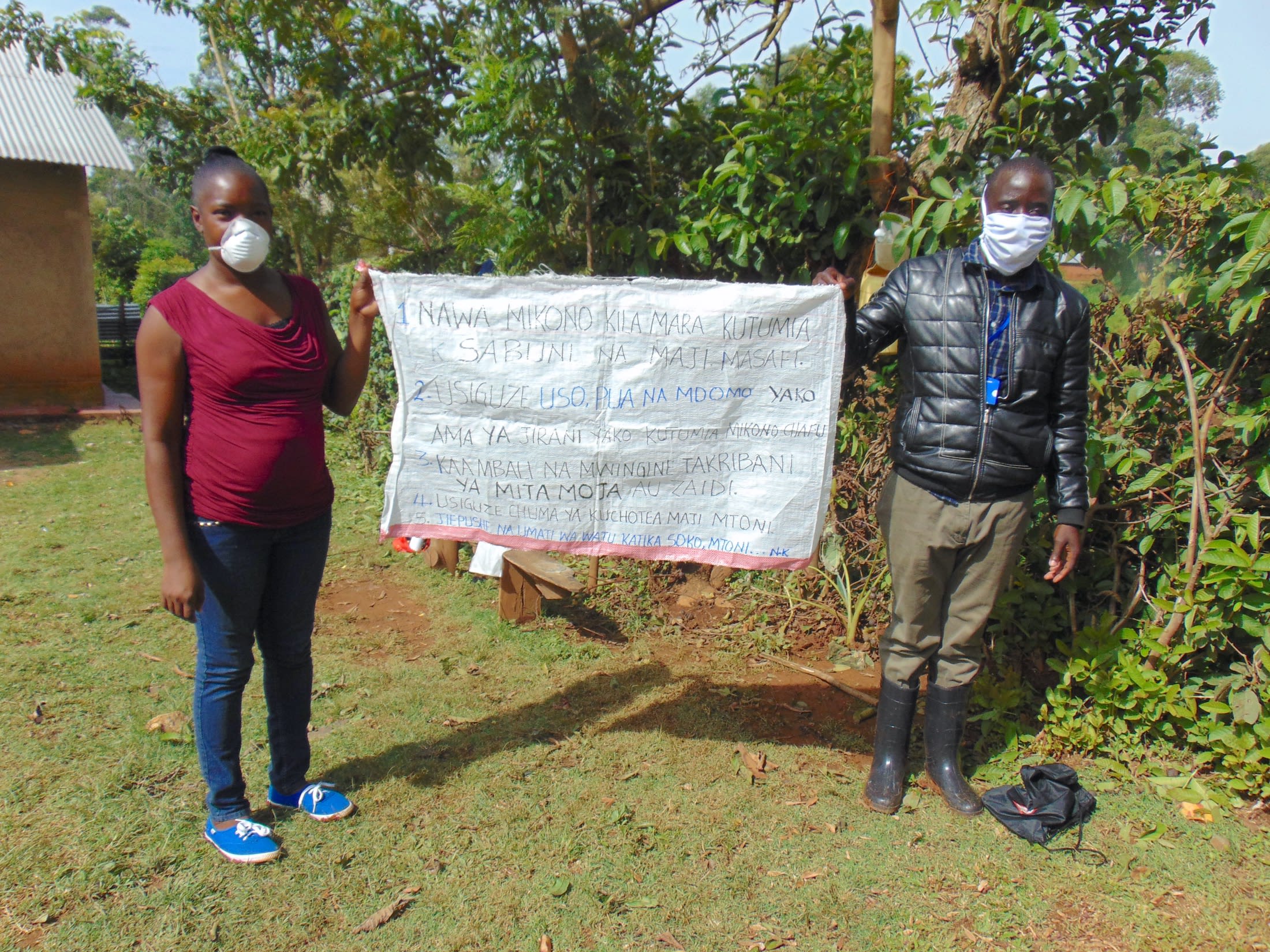This project is a part of our shared program with Western Water and Sanitation Forum (WEWASAFO). Our team is pleased to directly share the below report (edited for clarity, as needed).
Welcome to the Community
A normal day in Shitaho Community starts at 5:30AM when parents wake up to help their children prepare for school. Once children are sent out the door, parents take care of morning chores. These include fetching water from the local spring, washing dishes, collecting firewood, and many other tasks. After these are done, they work on the farm to grow vegetables and tend to the banana trees. Around 10AM, local "mamas," or businesswomen, carry a tray of vegetables and bananas to see at the local market. They walk to the market with the faith that they will sell all they have; they never forget their empty bottles saved for the kerosene they will buy at the end of the day. When the mamas get back home, they start cooking dinner for their families.
Women in Shitaho Community appear to have the longest list of responsibilities. Families are basically fueled by woman power. The men tend to leave their farms early to join their friends for alcohol. Women overstretch to cover for their husbands' laziness, trying to pay for both household needs and school fees. This project is bringing these lifestyles to light. Men have already started to realize how much their wives do for them and their children, and they're starting to come around and embrace community development. The men have vowed to join hands with the women to bring lasting change to Shitaho Community.
Shitaho Community is home 189 people from 27 different households.
Water Situation
These 189 people rely on Jared Spring for their water. Women tend to use a 20-liter plastic container, and children opt for a lighter 5-liter container.
The community fixed a pipe at the mouth of the spring to siphon water out and into the container. A woman and a child just has to set their container down and wait for it to fill; the hard part is lifting it up and bringing it back home! Once home, the water is normally consolidated in a 100-liter plastic barrel. If the family needs more drinking water, it is poured into a covered clay pot stored in either the kitchen or living room.
We know that Jared Spring is contaminated because of the numerous reports of waterborne disease. Our visit to the spring confirmed this fact; the water flowing up to the pipe is open and subjected to erosion, surface runoff, and animals. Jared Spring is also located at the bottom of a slope, with rain often funneling contaminants straight into the water.
Sanitation Situation
Under half of households in Shitaho Community have their own pit latrine. The ones observed are made of mud walls, sugar sacks for doors, and grass for roofs. Logs are lain out over the pit to form a floor on which users have to balance. Since so few families have their own pit latrine, open defecation is an obvious issue.
We found no hand-washing stations and only a few helpful sanitation tools like dish racks or clotheslines. Garbage is often piled up at the edge of the banana plantations. The garbage pile is burned when it gets too high.
Plans: Hygiene and Sanitation Training
Community members will attend hygiene and sanitation training for at least three days. This training will ensure participants are no longer ignorant about healthy practices and their importance. The facilitator plans to use PHAST (Participatory Hygiene and Sanitation Transformation), CLTS (Community-Led Total Sanitation), ABCD (Asset-Based Community Development), group discussions, handouts, and demonstrations at the spring.
Training will also result in the formation of a committee that will oversee operations and maintenance at the spring. They will enforce proper behavior around the spring and delegate tasks that will help preserve the site, such as building a fence and digging proper drainage.
Plans: Sanitation Platforms
On the final day of training, participants will select five families that should benefit from new latrines.
Training will also inform the community and selected families on what they need to contribute to make this project a success. They must mobilize locally available materials, such as bricks, clean sand, hardcore, and ballast. The five families must prepare by sinking a pit for the sanitation platforms to be placed over. All community members must work together to make sure that accommodations and food are always provided for the work teams.
Plans: Spring Protection
Fetching water is predominantly a female role, done by both women and young girls. Protecting the spring and offering training and support will therefore help empower the female members of the community by giving them more time and efforts to engage and invest in income-generating activities.
In addition, protecting the spring will ensure that the water is safe, adequate and secure. Construction will keep surface runoff and other contaminants out of the water. Mrs. Rose Mukoshi said, "We are ready and willing to avail the required local materials because this will be an answered prayer. Ill health cases have been reported consistently as a result of use of unsafe water, unhygienic environment and ignorance about proper hygiene practices."

 Protected Spring
Protected Spring
 Rehabilitation Project
Rehabilitation Project







































